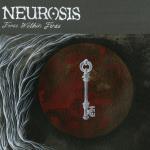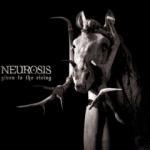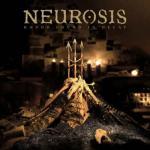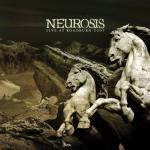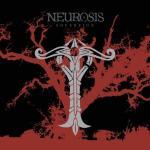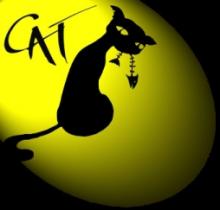Neurosis
I remember the first time a Neurosis album flat out blew me away. It was Souls at Zero in 1991, the year that the Bay Area sextet came into its own and birthed a sound that later would ripple through and resonate in many disparate genres.
With The Eye of Every Storm Neurosis has again floored me with an album so invigorated and inventive that it’s likely to outshine all its previous efforts. The band that’s best known for its ability to overwhelm the senses has created a symphonic psychedelic masterpiece.
The Eye of Every Storm is like walking into an ornately decorated, yet meticulously organized room -- there is simply too much to take in with just a shallow glance. It’s a culmination of the band’s ideas reaching full circle to its core elements of droning folk, operatic guitar girth and churning rhythms. Sure, the band’s signature pummeling riffs, crushing dynamics and brilliantly innovative use of unusual folk instruments and organic textures remain constant. But, The Eye of Every Storm reaches far beyond what we’ve come to expect from the Bay Area band in its nearly 20-years of existence. It is a confounding and compelling sound that fits delicate melody, warped subtleties and surrealist sound effects within its heavy arsenal of meticulous orchestration.
The album is a definite must for fans of trippy prog rock like Hawkwind, Faust, Can, Skullflower, Acid Mothers Temple and Chrome. But, also those who adore new electro-psych groups like Black Dice, Oneida and Wolf Eyes will love the simultaneously pummeling riffs and rhythms, intricate melodic churn and claustrophobic layers of sound. And, diehard Neurosis fans will probably agree that this time the band has outdone itself.
The album is immediately jarring within the first 30-seconds of the first song, "Burn." Jason Roeder’s driving 6/8 drum beat is abruptly interrupted by and underscored by a loud crash -- sounding something like an avalanche or metal chairs thrown across the room -- while guitar feedback rings out and gives way to a deceptively soothing minor-chord melody.
Guitarist/vocalist Steve Von Till’s urgent, rasping wail seems to herald impending eruption as bassist/vocalist Dave Edwardson plucks a quickly pulsing line that seems to tug the guitars along, alternately chiming and wailing like banshees. Guitarist/vocalist Scott Kelly leads the crashing waves of open-tuned guitar riffs – hitting that signature "Neurosis note" of bent guitar strings that sound like a bloodthirsty beast coupled with a metal machine press -- on "No River to Take Me Home." The title track touches on the glissando folk-drone sound of darker, early Pink Floyd with almost Flaming Lips style orchestration as the band expands its dynamic palette to further explore the middle ground between erupting guitars and quiet passages. Here, as on much of the album, keyboardist Noah Landis adds powerful symphonic organ melodies along with his arsenal of nature-based sound samples. Additionally, extremely warped guitar pedal effects, vocal harmonies, tubular bells and murmuring cellos seep in the gaps and flow throughout the many layers of the song. It’s almost like a condensed version of Pink Floyd’s entire Wish You Were Here album, retaining the hooks while delving deeper into analog fried-psych territory.
Throughout The Eye of Every Storm, dry and upfront-sounding drums and instruments weave and lock together in a way that’s utterly alien to most "heavy" music. Working again with legendary engineer Steve Albini (who also recorded three previous Neurosis releases Times of Grace, Sovereign and A Sun That Never Sets), the band and engineer found the perfect mix for its complex sound. The guitar parts, bass lines, synths and intimate vocal lines work together so well it´s almost pop music in construction, but still sounding like a gale wind force. Von Till and Kelly both sound much more confident in the strength of their vocals. Both singers give up the screaming for a more expressive and melodic vocal style, luring the listener into the soundscape with passion and urgency, selectively bolstering the vocals with a wall of blistering guitars only when it aims for complete sensory overload.
Whatever I -- or any of us -- thought Neurosis was supposed to sound like, The Eye of Every Storm changes everything. This band that I’ve followed and admired for over 13 years somehow sounds even more vital and inspiring than ever before. See for yourself.
Pain Of Mind (1987)
The Word As Law (1991)
Souls At Zero (1992)
Enemy Of The Sun (1993)
Through Silver In Blood (1996)
Locust Star EP (1997)
Times Of Grace (1999)
Sovereign EP (2000)
A Sun That Never Sets (2001)
Neurosis & Jarboe (2003)
Eye Of Every Storm (2004)


